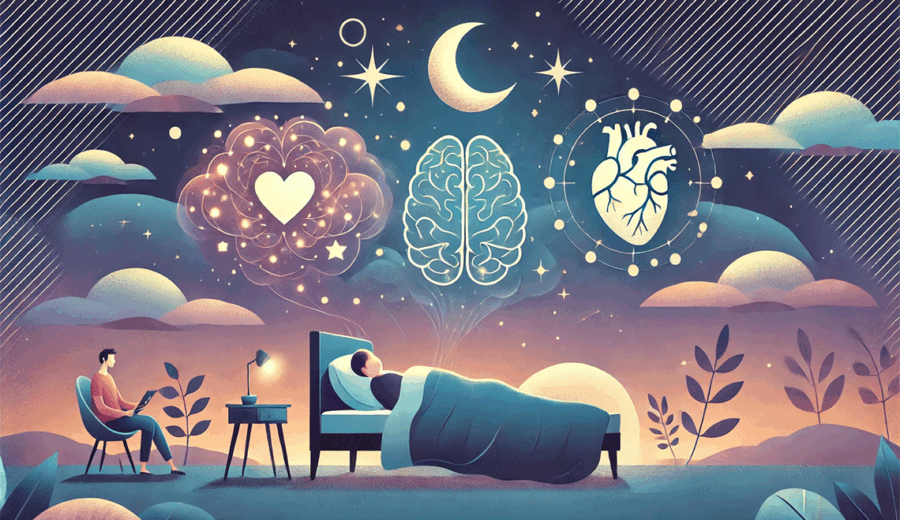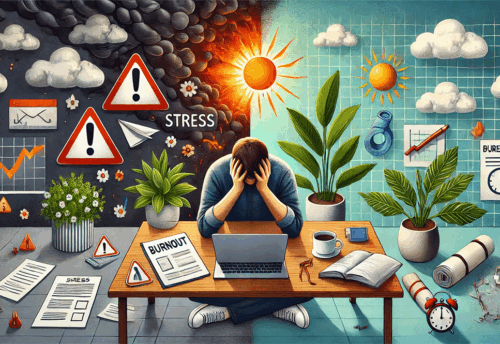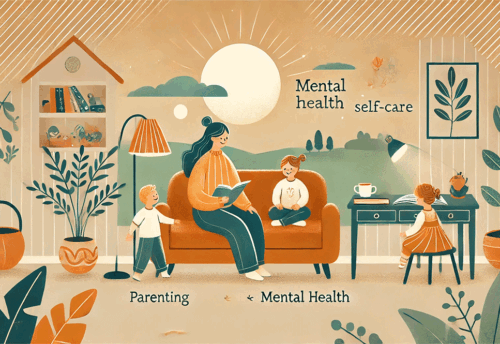
The Importance of Sleep for Emotional Wellness
The Importance of Sleep for Emotional Wellness
Sleep is a cornerstone of mental health and emotional well-being, playing a crucial role in maintaining cognitive function, regulating emotions, and preventing burnout. Despite its importance, sleep often takes a backseat in today’s fast-paced world, where productivity and packed schedules are prioritized. Understanding the profound impact of sleep on mental and emotional health can motivate individuals to prioritize rest as an essential component of a balanced and healthy life.
How Sleep Affects Emotional Wellness
Sleep has a significant influence on our emotional stability and mental clarity. It is during sleep that the brain processes emotions, consolidates memories, and resets for the next day. Without adequate sleep, emotional regulation, cognitive function, and stress management can all be compromised.
Regulation of Emotions: Sleep allows the brain to process and manage emotional experiences, stabilizing mood and reducing emotional reactivity. When sleep is disrupted, people are more likely to feel irritable, overwhelmed, and less capable of managing stress effectively. A well-rested brain is better equipped to evaluate emotional situations calmly and respond appropriately, enhancing emotional intelligence and resilience.
Cognitive Function: Adequate sleep significantly impacts memory, focus, and decision-making abilities. The brain uses sleep to consolidate new information and optimize problem-solving skills. Additionally, sleep fosters creativity and critical thinking, which are essential for navigating daily challenges and achieving long-term goals.
Stress Reduction: During deep sleep phases, the body reduces levels of cortisol, the stress hormone, allowing for relaxation and recovery. These phases are critical for repairing tissues, restoring energy, and reinforcing the body’s stress response mechanisms. This process not only improves physical health but also builds mental resilience.
Prevention of Mental Health Issues: Chronic sleep deprivation is closely linked to an increased risk of mental health conditions such as depression, anxiety, and burnout. Sleep supports the production of neurotransmitters like serotonin, which are essential for mood regulation. When sleep is compromised, the likelihood of developing or exacerbating mental health disorders increases significantly.
The Science of Sleep
The biological mechanisms that govern sleep are complex and deeply interconnected with mental health. Understanding the science of sleep sheds light on why it is such a vital aspect of emotional wellness.
Sleep Cycles: Sleep is divided into REM (Rapid Eye Movement) and non-REM stages, each with specific benefits. REM sleep, in particular, is essential for emotional processing, memory consolidation, and dreaming. Non-REM sleep allows the body to restore physical energy and repair cells, creating a balance between physical and mental rejuvenation.
Brain Activity During Sleep: During sleep, the brain’s glymphatic system becomes active, clearing out toxins and metabolic waste that accumulate during wakefulness. This process supports mental clarity, reduces cognitive decline, and ensures that the brain remains healthy and efficient.
Circadian Rhythm: The circadian rhythm, the body’s internal clock, regulates sleep-wake cycles based on light exposure and daily habits. A well-regulated circadian rhythm ensures that the body receives the restorative sleep it needs, while disruptions to this rhythm, such as irregular sleeping patterns, can lead to sleep deficits and emotional imbalances.
Consequences of Poor Sleep
Poor sleep has far-reaching effects on mental and emotional health, disrupting every aspect of well-being. Emotional dysregulation is one of the most immediate consequences, leading to increased irritability, mood swings, and difficulty coping with stress. Impaired cognitive performance is another major issue, as sleep deprivation slows reaction times, causes memory lapses, and diminishes problem-solving abilities. Furthermore, chronic fatigue and insufficient sleep increase the risk of burnout, a state of physical and emotional exhaustion that can severely impact productivity and quality of life.
Strategies for Better Sleep
Establish a Routine: Maintaining a consistent sleep schedule by going to bed and waking up at the same time every day helps regulate the body’s internal clock. This consistency improves the quality and duration of sleep, making it easier to wake up feeling refreshed.
Create a Sleep-Friendly Environment: A comfortable sleeping environment is essential for restful sleep. Keeping the bedroom cool, dark, and quiet, along with investing in a supportive mattress and pillows, can significantly enhance sleep quality.
Limit Screen Time: Exposure to blue light from phones, computers, and TVs suppresses melatonin production, making it harder to fall asleep. Avoiding screens at least an hour before bedtime can help prepare the body for rest.
Practice Relaxation Techniques: Activities such as meditation, deep breathing, or gentle yoga can help calm the mind and body before bed. These practices lower stress levels, making it easier to transition into a restful state.
Avoid Stimulants: Caffeine, nicotine, and other stimulants can interfere with the ability to fall asleep and reduce sleep quality. Limiting their intake, especially in the evening, can help improve sleep patterns.
Exercise Regularly: Physical activity promotes better sleep by reducing stress and tiring the body. However, vigorous exercise should be avoided close to bedtime as it can increase alertness and delay sleep onset.
Mind Your Diet: Heavy meals and alcohol consumption before bed can disrupt sleep. Opt for light, healthy snacks if needed, and stay hydrated throughout the day without overloading on fluids in the evening.
Sleep and Mental Health Disorders
For individuals with mental health conditions, sleep becomes even more critical. In depression, poor sleep exacerbates symptoms, creating a cycle of fatigue, low mood, and reduced energy. In anxiety disorders, sleep disturbances such as insomnia are common, with relaxation techniques and cognitive behavioral therapy (CBT) often playing key roles in treatment. For those with PTSD, specialized therapies like CBT for insomnia or exposure therapy can help address sleep disruptions associated with trauma, improving both sleep quality and emotional health.





Leave a Reply